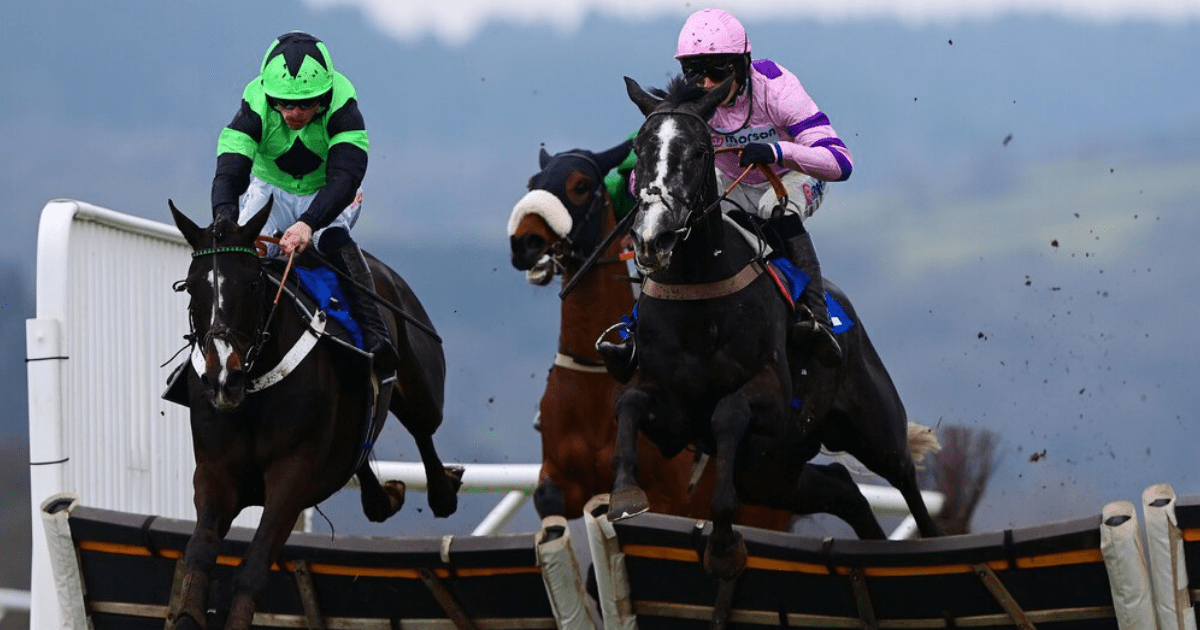The excitement kicked off at Cheltenham Festival 2024 with the Supreme Novices’ Hurdle setting the stage for what promises to be an exhilarating event. Here's a breakdown of the results and schedule you need to know:
Supreme Novices’ Hurdle Results
Stay tuned for the full finishing order…
Cheltenham Day-by-Day Schedule
Here's a glimpse of the day-by-day schedule at the Cheltenham Festival:
Champion Day – Tuesday, March 12

Highlighted by the Supreme Novices’ Hurdle and more exciting races.
Ladies Day – Wednesday, March 13
Featuring races like Novices’ Hurdle and Queen Mother Champion Steeple Chase.
St. Patrick’s Thursday – Thursday, March 14
Don't miss out on races like Turners Novices’ and Paddy Power Stayers’ Hurdle.
Gold Cup Day – Friday, March 15
The grand finale with races including Cheltenham Gold Cup and Mares’ Steeple Chase.
How to Watch Cheltenham Races
If you're wondering how to catch all the action live, here's how:
ITV is your go-to for Cheltenham Festival coverage, airing five races daily on ITV1 between 1pm and 4.30pm. The remaining races can be viewed on Racing TV. For streaming, tune in to the ITVX app or website for the first five races, free of charge.
Frequently Asked Questions
What is the UK horse racing ‘Classics?
In UK horse racing, ‘Classics” refers to five prestigious races considered to be the highest-ranking contests for thoroughbreds aged three years. The 2,000 Guineas race, The 1,000 Guineas race, The Epsom Derby Race, The Epsom Oaks Race, and The St. Leger Stakes are all Classics. Winning one of these Classics is a significant achievement for any racehorse, and attaining victory in all three of the races open to a specific gender (either the colts’ Triple Crown or the fillies’ Triple Crown) is a rare and historic accomplishment.
What are the UK’s most prestigious horse races?
The United Kingdom hosts many acclaimed horse-racing events that are popular around the globe. The Epsom Derby and Royal Ascot are the most prestigious. These events showcase not only the best in equine talents, but also rich tradition and history. They have evolved into social occasions with distinct dress codes and royal patronage.
How are racehorses selected and bred?
Most racehorses have been bred specifically to excel at the racetrack. Breeders look for sires or dams that have proven racing pedigrees. They want to breed offspring with the best qualities of speed, endurance and temperament. Thoroughbreds have a long history of racing in England, and the bloodlines are meticulously recorded. Potential racehorses go through a process of selection that includes a pedigree assessment, physical conformation assessments and their performance in training.
Are there different types horse races in Britain?
There are many different types of horse racing in the UK. They fall primarily under the categories of Flat Racing and National Hunt (or Jump) racing. Flat racing, which doesn’t involve obstacles, takes place on level tracks, ranging in length from 5 furlongs all the way up to over 2miles. National Hunt racing focuses on both the horse’s jumping and speed. Races like steeplechases and hurdles feature obstacles. Within these two broad categories, there are also variations such as handicaps, maidens, and conditions races, each with specific entry criteria and rules.
What does ‘photofinish’ in horseracing mean?
A ‘photo finish’ occurs when two or more horses cross the finish line so closely together that it is impossible to determine the winner with the naked eye. In such instances, race officials use a finish-line camera that captures images at high speeds to review the precise moment each horse’s nose reaches the line. The photo finish helps officials determine the official finish order accurately.
How does the handicapping system work in UK Horse Racing?
In UK horse racing, the handicap system is designed to give every horse an equal chance of winning a race. Essentially, horses are assigned different weights to carry during the race based on their past performances. Better horses carry heavier weights to level the playing field against horses with lesser past performances. The British Horseracing Authority, which is responsible in the UK for the handicapping system, regularly updates the ratings following the results.
Statistics
- The annual Cheltenham Festival has an economic impact of over £100 million for the local Gloucestershire economy.
- Horse racing contributes an estimated £3.7 billion to the UK economy directly and indirectly each year.
- Around 14,000 thoroughbred foals are born each year in the UK with the goal of becoming top racehorses.
- The Grand National at Aintree boasts a prize fund of around £1 million, making it the most valuable jump race in Europe.
- The Royal Ascot, held annually in June, draws crowds of 300,000 over its five-day meeting.
- Approximately 6 million people attend horse racing events in the UK each year, making it the second most popular spectator sport in the country.
External Links
thejockeyclub.co.uk
thejockeyclub.co.uk
tattersalls.com
ascot.com
thejockeyclub.co.uk
thejockeyclub.co.uk
How To
How to Choose the Right Horse Racing Festival in the UK
Choosing the right horse racing festival in the UK depends on your interests, whether it be the elegance of flat racing or the thrill of jumps. Royal Ascot, with its royal connections and strict attire code, is ideal for those who enjoy pomp and showmanship. Cheltenham Festival has a combination of high-stakes races and a festive environment. Research the history and traditions, the types of races held, and what additional entertainment is offered. You should also consider accessibility and location as well as your accommodation options in order to make sure that you have the best possible race day.

